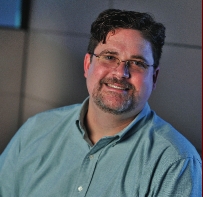
HOME / PROCLAMATION! MAGAZINE / 2015 / WINTER / ADVENTISM EXAMINED WITH RICK BARKER
W I N T E R • 2 0 1 5
VOLUME 16, ISSUE 4

Rick Barker is a native of Southwestern Ohio and facilitates a weekly Bible study for former and transitioning Adventists in the Dayton, Ohio, area. Rick graduated from Andrews University in 1987 and received a Masters degree from the University of Dayton. Rick and his wife Sheryl formally left the Adventist chuch in 2004. Prior to this they had been active in the Miamisburg and Wilmington, Ohio, churches.

D E P A R T M E N T S
Adventism EXAMINED with Rick Barker
ADVENTISM’S FUNDAMENTAL BELIEF #17
SPIRITUAL GIFTS AND MINISTRIES

Adventism’s Fundamental Belief #17: Spiritual Gifts and Ministries
God bestows upon all members of His church in every age spiritual gifts which each member is to employ in loving ministry for the common good of the church and of humanity. Given by the agency of the Holy Spirit, who apportions to each member as He wills, the gifts provide all abilities and ministries needed by the church to fulfill its divinely ordained functions. According to the Scriptures, these gifts include such ministries as faith, healing, prophecy, proclamation, teaching, administration, reconciliation, compassion, and self-sacrificing service and charity for the help and encouragement of people. Some members are called of God and endowed by the Spirit for functions recognized by the church in pastoral, evangelistic, apostolic, and teaching ministries particularly needed to equip the members for service, to build up the church to spiritual maturity, and to foster unity of the faith and knowledge of God. When members employ these spiritual gifts as faithful stewards of God’s varied grace, the church is protected from the destructive influence of false doctrine, grows with a growth that is from God, and is built up in faith and love.
Comments about the belief statement
There is plenty of debate within Christianity running the gamut from cessationism to charismaticism. This Adventist belief statement falls within this familiar spectrum. In fact, the statements within this Fundamental Belief sound quite biblical with the exception of changing the gift of tongues to that of “proclamation”. The big issue with this statement, however, is the discrepancy between what the Adventist organization proclaims as its official beliefs and how it actually operates within them.
With the glaring, singular exception of Ellen White, the Adventist organization is, in practice, cessationist. While Adventism allows the theoretical possibility that God may raise up another prophet among them—and while many Adventists have claimed to be prophets over the years—the organization does not officially acknowledge anyone besides Ellen White as having the gift of prophecy. Yet claiming a 19th-century prophet as the fulfillment of the biblical spiritual gift leads to questions. Shouldn’t there be at least one acknowledged prophet in the history of the Christian church—if Adventism is part of the Christian church—between the apostles and Ellen White? Why is there no active prophet now in the Adventist organization?
While the Adventist organization recognizes that God can heal, Adventism does not promote individuals with a “gift of healing”. Adventists practice prayer and anointing the sick with oil, but although they believe in miracles, Adventism does not designate individuals as having the gift to convey these miracles. Within Adventism, talented medical professionals may be seen as those having the “gift of healing”. To be sure, being an excellent diagnostician or therapeutic care-giver may be a God-given talent, but it may not be a spiritual gift.
Nevertheless, Loma Linda University’s motto, mission, and vision reveal Adventism’s focus on medical professionals as those carrying the mantle of Jesus’ power to heal.
Motto: to make man whole; mission: to continue the teaching and healing ministry of Jesus Christ; vision: transforming lives through education, healthcare and research. [www.llu.edu]
Education and personal skill thus replace the spiritual significance of the gift.
I have already noted that the Adventist organization changes the gift of tongues into the gift of proclamation, eliminating yet another obvious spiritual gift and substituting a skill or work of the person. Furthermore, while this fundamental belief allows for individuals to exercise apostolic gifts, Adventism does not recognize people as apostles.
In short, this fundamental belief on spiritual gifts obscures the actual Adventist view of spiritual gifts today which is essentially cessationist among its members. Instead, Adventism uses the spiritual gifts as a foundation from which to introduce people to their one and only prophet, Ellen White. †

Copyright 2015 Life Assurance Ministries, Inc., Camp Verde, Arizona, USA. All rights reserved. Revised May 25, 2016. Contact email: proclamation@gmail.com